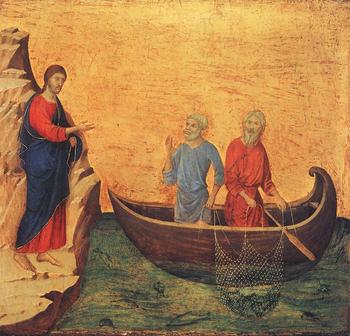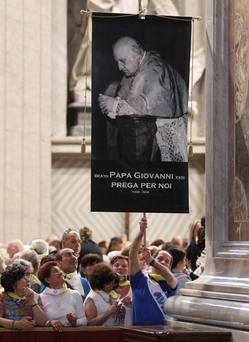The feast of Saint Andrew sparks the question in my heart about the nature –cost of discipleship. What is “discipleship” and what is its cost? Why is there a cost? Truth be told, obedience to the Gospel is not easy. Following the Lord is not easy when there are pressures from within and from without that say “go the other way” or “don’t be bothered, no one else is.” If one really wants to walk the path that leads to happiness, how does one do this? The monastic life which I am now trying to lead asks the same questions. There are days that the life is beautiful; there are days in which it’s a nuissance (to say the least). Doing the will of God must be easy, clear and satisfying for some people. I can’t always say the same. I think of the call of Andrew and Peter and what they must have felt and thought and did…
 The Cost of Discipleship
The Cost of Discipleship
Dietrich Bonhoeffer
The call of Jesus goes forth, and is at once followed by the response of obedience. The response of the disciples is an act of obedience, not a confession of faith in Jesus. How could the call immediately evoke obedience?
The story of the call of the first disciples is a stumbling-block to our natural reason, and it is no wonder that frantic attempts have been made to separate the two events. By hook or by crook a bridge must be found between them. Something must have happened in between, some psychological or historical event. Thus we get the stupid question: Surely the disciples must have known Jesus before, and that previous acquaintance explains their readiness to hear the Master’s call. Unfortunately our text is ruthlessly silent on this point, and in fact it regards the immediate sequence of call and response as a matter of crucial importance. It displays not the slightest interest in the psychological reasons for a person’s religious decisions. And why? For the simple reason that the cause behind the immediate following of call by response is Jesus Christ himself. It is Jesus who calls, and because it is Jesus, the disciple follows at once.
This encounter is a testimony to the absolute, direct, and unaccountable authority of Jesus. There is no need of any preliminaries, and no other consequence but obedience to the call. Because Jesus is the Christ, he has the authority to call and to demand obedience to his word. Jesus summons us to follow him not as a teacher of a pattern of the good life, but as the Christ, the Son of God. In this short text Jesus Christ and his claim are proclaimed to the world. Not a word of praise is given to the disciple for his decision for Christ. We are not expected to contemplate the disciple, but only him who calls, and his absolute authority. According to our text, there is no road to faith or discipleship, no other road -only obedience to the call of Jesus.
And what does the text inform us about the content of discipleship? Follow me, run along behind me! That is all. To follow in Christ’s steps is something which is void of all content. It gives us no intelligible programme for a way of life, no goal or ideal to strive after. When we are called to follow Christ, we are summoned to an exclusive attachment to his person. The grace of his call bursts all the bonds of legalism. It is a gracious call, a gracious commandment. It transcends the difference between the law and the gospel. Christ calls the disciples follows; that is grace and commandment in one.
(Dietrich Bonhoeffer, The Cost of Discipleship, English trans. R. H. Fuller, London, 1959, pp. 48-9.)

